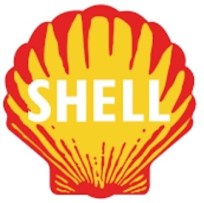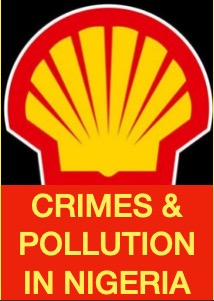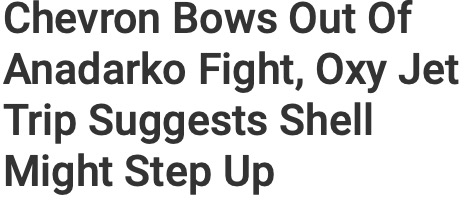 OILPRICE.COM
OILPRICE.COM
Shell: Britain Is Less Attractive Than The U.S. For Energy Investment
The UK is less attractive than the United States for energy investment, due to the high windfall taxes on energy producers in Britain and the lack of incentives for clean energy investments similar in scale to the American provisions to boost green energy, Shell’s CEO Wael Sawan told The Times in an interview published on Monday.
The UK government should “take a page from some of the things that the US have done recently, through the Inflation Reduction Act,” Sawan told the newspaper.
The IRA has nearly $370 billion in climate and clean energy provisions, including investment and production credits for solar, wind, storage, critical minerals, funding for energy research, and credits for clean energy technology manufacturing such as wind turbines and solar panels.
The EU also seeks to bolster policies to support the EU’s clean technology manufacturing and preserve the bloc’s competitiveness in the face of the U.S. Inflation Reduction Act and massive subsidies in China.
 OIL
OIL OIL
OIL OIL
OIL OIL
OIL Oil
Oil OILPRICE.COM
OILPRICE.COM
 OIL
OIL
 Will Big Oil’s Huge Carbon Capture Bet Pay Off?
Will Big Oil’s Huge Carbon Capture Bet Pay Off? The World Still Needs Hundreds Of Billions Of Barrels Of Oil
The World Still Needs Hundreds Of Billions Of Barrels Of Oil


 Shell Shuts Down 310,000 Bpd Deer Park Refinery
Shell Shuts Down 310,000 Bpd Deer Park Refinery
 The Big Oil Side Hustle: Where ‘Renewable’ Money Is Really Going
The Big Oil Side Hustle: Where ‘Renewable’ Money Is Really Going


 Shell Offers Staff Voluntary Severance Pay
Shell Offers Staff Voluntary Severance Pay
 By
By 


 By
By 




 Oil supermajor Royal Dutch Shell has appointed investment bank Citi to run the $1 billion (£781.5m) sale of its oil and gas assets in Egypt’s Western Desert.
Oil supermajor Royal Dutch Shell has appointed investment bank Citi to run the $1 billion (£781.5m) sale of its oil and gas assets in Egypt’s Western Desert.










 By
By 
 By
By 



 By
By 

 By
By 
 By
By 


 By
By 

 By
By 

 By
By 

 By
By 






















 Royal Dutch Shell conspired directly with Hitler, financed the Nazi Party, was anti-Semitic and sold out its own Dutch Jewish employees to the Nazis. Shell had a close relationship with the Nazis during and after the reign of Sir Henri Deterding, an ardent Nazi, and the founder and decades long leader of the Royal Dutch Shell Group. His burial ceremony, which had all the trappings of a state funeral, was held at his private estate in Mecklenburg, Germany. The spectacle (photographs below) included a funeral procession led by a horse drawn funeral hearse with senior Nazis officials and senior Royal Dutch Shell directors in attendance, Nazi salutes at the graveside, swastika banners on display and wreaths and personal tributes from Adolf Hitler and Reichsmarschall, Hermann Goring. Deterding was an honored associate and supporter of Hitler and a personal friend of Goring.
Royal Dutch Shell conspired directly with Hitler, financed the Nazi Party, was anti-Semitic and sold out its own Dutch Jewish employees to the Nazis. Shell had a close relationship with the Nazis during and after the reign of Sir Henri Deterding, an ardent Nazi, and the founder and decades long leader of the Royal Dutch Shell Group. His burial ceremony, which had all the trappings of a state funeral, was held at his private estate in Mecklenburg, Germany. The spectacle (photographs below) included a funeral procession led by a horse drawn funeral hearse with senior Nazis officials and senior Royal Dutch Shell directors in attendance, Nazi salutes at the graveside, swastika banners on display and wreaths and personal tributes from Adolf Hitler and Reichsmarschall, Hermann Goring. Deterding was an honored associate and supporter of Hitler and a personal friend of Goring.

 Deterding was the guest of Hitler during a four day summit meeting at Berchtesgaden. Sir Henri and Hitler both had ambitions on Russian oil fields. Only an honored personal guest would be rewarded with a private four day meeting at Hitler’s mountain top retreat.
Deterding was the guest of Hitler during a four day summit meeting at Berchtesgaden. Sir Henri and Hitler both had ambitions on Russian oil fields. Only an honored personal guest would be rewarded with a private four day meeting at Hitler’s mountain top retreat.


















 IN JULY 2007, MR BILL CAMPBELL (ABOVE, A RETIRED GROUP AUDITOR OF SHELL INTERNATIONAL SENT AN EMAIL TO EVERY UK MP AND MEMBER OF THE HOUSE OF LORDS:
IN JULY 2007, MR BILL CAMPBELL (ABOVE, A RETIRED GROUP AUDITOR OF SHELL INTERNATIONAL SENT AN EMAIL TO EVERY UK MP AND MEMBER OF THE HOUSE OF LORDS: 



























 MORE DETAILS:
MORE DETAILS:













































































 A head-cut image of Alfred Donovan (now deceased) appears courtesy of The Wall Street Journal.
A head-cut image of Alfred Donovan (now deceased) appears courtesy of The Wall Street Journal.




































































